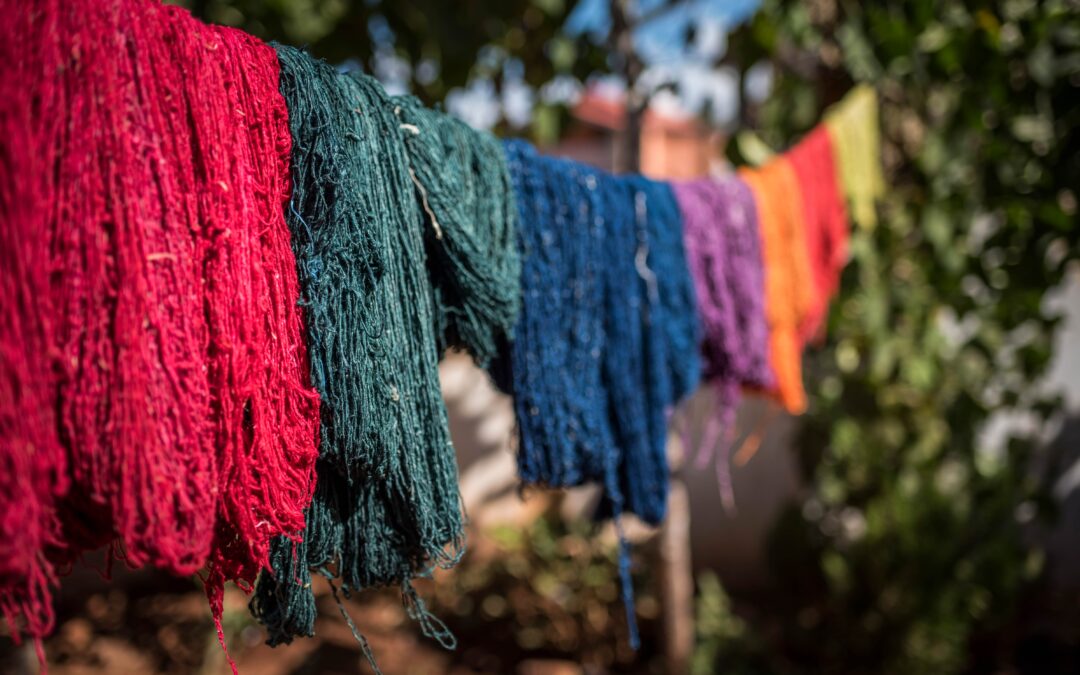Individualism. Competition. Risk aversion. Short-termism. Scarcity. Presumed expertise. Many of the norms by which philanthropy operates perpetuate the very narratives our sector seeks to change. In this series on the CEP blog, contributors who represent a cross-section of philanthropy examine some of the common ‘myths’ by which philanthropy operates and ask, “what if?”, offering approaches, interventions, and new visions for how philanthropy could operate for a more just world.
A Barclays survey of more than 400 high-net worth individuals found that one in four cite their inability to control how their money will be used as a barrier to making large donations to philanthropic causes. The same number say they “don’t have faith in how charities are run.”
This survey is an all-too-clear window into a pervasive premise in philanthropy: the idea that those that hold the money are best positioned to decide (and control) where the money goes. It also shows how philanthropists possess a disproportionate legitimizing power, often selecting and validating the groups and issues they prioritize based principally on their own comfort levels, rather than trusting the deep, experience-based knowledge of self-led, Global Majority groups on the issues they seek to solve.
It’s time for philanthropy to courageously and intentionally engage in introspection around its own boundaries of knowledge, and release itself from its myths of expertise that have stymied progress and maintained the status quo.
The question of who and what constitutes a legitimate source of information is critical to our work at Whose Knowledge? to center the Global Majority on the internet. Transversing the spheres of research, advocacy, and action, we start with the radical practice that people are knowledges, that there are many different forms of knowing, doing, and being in the world. Yet, our multiple realities and contexts are not reflected in many aspects of our world, from our digital infrastructures to funding mechanisms.
An example from the tech world illustrates the implications of a narrow conception of expertise in how we document and distribute knowledge. Of the nearly 8,000 spoken and signed languages in the world, only 500 or so are represented in publishing and public knowledge online. Of those, most are colonial or dominant languages. In our State of the Internet’s Languages Report, we found that the leading digital platforms we surveyed don’t support the vast majority of African languages, and as a result, more than 90 percent of African people have to use a second language in order to use them. Similar patterns exist around the world, with half of the surveyed platforms offering no regional languages at all.
The consequence is a hidden crisis of ‘unknowing’, where we do not adequately know each other or the histories and wisdoms contained in our rich, diverse, multilingual, and multicultural world.
Tech companies and their leadership teams — which are predominantly white privileged and brown dominant-caste men from the Global North — are the industrialists of our modern colonial-capitalist age — and the new philanthropists. Just like a hundred years ago when the robber barons wrested their fortunes (and then their foundations) through imperial expansion and human exploitation, we increasingly see the colonial-capitalist systems at work today as wealth creation driven by the commodification of our personal and collective data, and other new forms of tech imperialism.
In our view, philanthropy’s continued need to control the flow of resources is rooted in who is seen and believed to be an expert, and who is not — decisions that reveal and reinforce the power hierarchies that embed inequality in our modern world.
At Whose Knowledge?, we challenge the practices of Big Tech and Big Knowledge by centering the multiple experiences, both lived and learnt, of our global communities and friends — whose identities mirror the 5.5 billion internet users more accurately than the C-suites and boardrooms of tech companies. We do this through virtual and physical convenings of unusual and unlikely allies, including community organizers, artists, scholars, linguists, technologists, open knowledge advocates, journalists, and more. Our programs are co-designed with community advisors and in communities of practice, working to embed participatory processes of budgeting, leadership, and decision-making.
Since people express their expertise differently in their chosen languages (as opposed to the language they are forced to use), we make every attempt to be multilingual and multimodal, whether through interpretation in our virtual meetings or through translations of our content. In each case, we seek to deliberately undermine perceived hierarchies of expertise and create shared access and stewardship of our resources and offerings (e.g. through participative budgeting processes).
In addition, as a direct intervention into philanthropy, we co-founded Numun Fund to serve as the first (and, currently, the only) dedicated feminist tech fund for and from the Global Majority. Like other feminist and community-led funds, Numun prioritizes core and flexible funding, and it makes participatory funding decisions, which means the communities they serve lead their grantmaking decisions on who and what gets funded, where, and how. This practice gives communities the space and flexibility to respond to issues in emergent and responsive ways, recognizing the expertise activists hold in understanding their own realities, seeing opportunities for change, and creating transformation that is most meaningful and needed.
By challenging traditional philanthropy’s propensity to overvalue its own expertise, community-led funds serve as an example for merging the potential utility of philanthropic institutions with the strategic and ethical needs of the moment. Community-led funds rapidly shift power and money directly into the hands of those bearing the brunt of our modern polycrisis, trusting their expertise and honoring their judgement. Simultaneously, they also expand community capacities through connecting organisers with the expertises of others in different contexts and spheres of influence.
At this critical historical juncture — in which new faces of colonialism are emerging and consolidating resources, power, and technology against our movements — philanthropy must disabuse itself of the myth of its inherent virtue and expertise. It must confront and materially correct the historical harms of colonial-capitalism, including the forced dispossession of people from their land, resources, cultural inheritances, and knowledges.
A functional way to rebalance and re-narrate the myths that underpin philanthropy is through the adoption of reparative frameworks (see examples here and here) aimed at dismantling the status quo of institutional expertise, information legitimacy, and knowledge validity by putting relationality, trust, and lived expertise of partners at the center.
Today, there are more than 58 million millionaires and nearly 2,800 billionaires in the world. Discussions on shifting power are becoming philanthropic rhetoric, but to materially shift power, control by the few must be relinquished, and institutions holding significant resources must practice the democratic values they seek to strengthen. This looks like trusting that activists, organizers, and communities on the frontlines of movements for justice and liberation know where the resources need to go and how they must be spent to have the greatest impact.
As a first step, philanthropy must grapple with its historical conviction that certain ways of knowing and speaking are more valuable than others, and expand its understanding of who and what counts.
Now is not the time to be paralyzed by uncertainty or fear of risk; now is the time for decisive action to move money at scale to communities and people grounded in memories of worlds before — and can imagine worlds beyond — colonial capitalism. These activists and stewards have been doing the work to keep our communities safe all along — and this is proof enough of their expertise and efficacy.
Cassie Denbow and élysse marcellin are the resources and reparations co-leads of Whose Knowledge?. Anasuya Sengupta is the founder and director of Whose Knowledge?.


